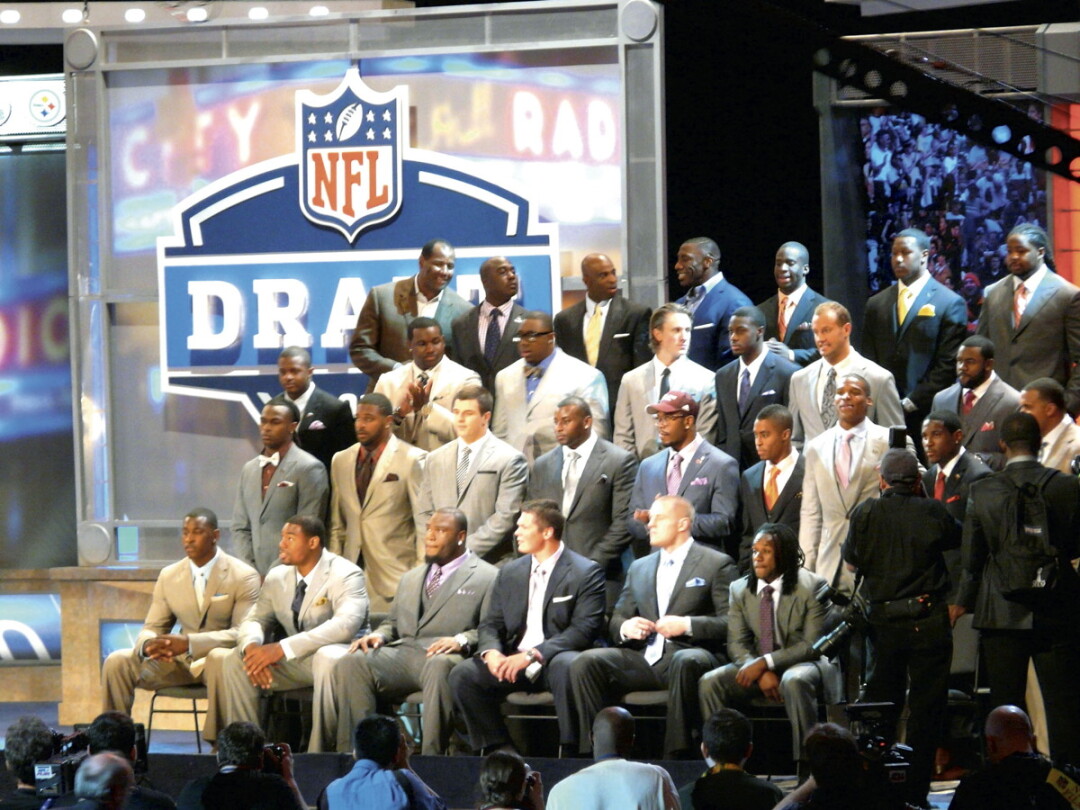Should Leagues Dump the Draft?
pro sports drafts are unfair to players, but getting rid of them could have unintended consequences

One of the remarkable aspects of sports in the 2010s has been the challenging of assumed athletic norms. Whether you agree with the alterations or not, a 2009 version of yourself may not have expected the rise of football concussion concerns and the potential for the sport’s future to be imperiled, or for video gamers to have developed organized leagues and TV coverage. Scanning the landscape to decipher the next institution to evolve – or devolve – you may need look to the event that will dominate much eager anticipation at the end of April: the NFL Draft. The question to be asked: Is any league’s draft in the best interest of its players?
You would think that the athlete, by virtue of his or her talent and performance, has earned to right to play for the best of the best. Essentially, a pro sports draft is conscription.
This is question you have likely never pondered, and I had not thought of the appropriateness of a draft during most of my sports fandom. We get excited for three drafts in June (the NBA’s, and to a lesser extent, the NHL’s and MLB’s), and especially so in April for the NFL Draft, that we develop cottage industries around mock drafts and predictions of who our favorite team will pick in which round. Heck, we do our own drafting with fantasy sports. Drafts are an integral element of sports culture – and a ton of fun.
However, contemplate this: Your son or daughter graduates from college, and instead of sending out their résumés and hoping to get hired by the best company in their field of interest, they get selected by a company based on an inverse order of company quality. For example, of all marketing majors at UW-Eau Claire, the one with the best GPA and résumé would automatically get hired by the Chippewa Valley business with the worst performance, the second-best would get picked by second-worst, and so on down the list. The concept of a draft seems absurd when applied to most real-life situations.
Why, then, do college or high school athletes looking to play professionally have to consider that they will likely work (remember, star athletes are still “working” even while playing a sport) for the poorest-performing franchises in a league? You would think that the athlete, by virtue of his or her talent and performance, has earned to right to play for the best of the best. Essentially, this is conscription.
Meanwhile, players unions want players to maximize their earnings and well-being – even as multi-millionaires. A lack of a draft would allow players extra leverage to get solid contracts from teams. Considering the relative flimsiness of NFL contracts, one can see the appeal for players.
These arguments have gradually been seeping into sports conversations in recent years. While no professional players union has made a priority of abolishing its league’s draft, there have been some rumblings in recent years that this could come to a negotiating table. More media exposure – like what we saw around concussions – could put the effort to eliminate drafts into the mainstream.
Would we care one way or another if drafts went away and rookies were available to the highest bidder? We would still engage in the speculation of which team would acquire which player – this is the same type of speculation that has accelerated interest in drafts in recent decades. Additionally, professional soccer teams around the world already bring in talent without a draft, and soccer has remained the most-popular sport in the world. If your team has the money, the track record of success, and good/smart personnel, it should be able to bring in more of the best, correct?
Then consider being a Brewers or Bucks fan. Neither would likely be near the top in their leagues for most of those aforementioned categories. The “haves” would collect the best players (though salary caps would help mitigate the imbalance). This is part of the reason those international soccer leagues have a few teams that always win. If you are a fan of the rest, you often wonder if your team can ever become appealing enough to highly touted young talent. Hope is not as commonplace without a draft.
For players, the just approach is playing for the team you want. For the multitudes of fans, the just approach is knowing your team can win. Perhaps an unfair system for some is the fairest system for all.


















